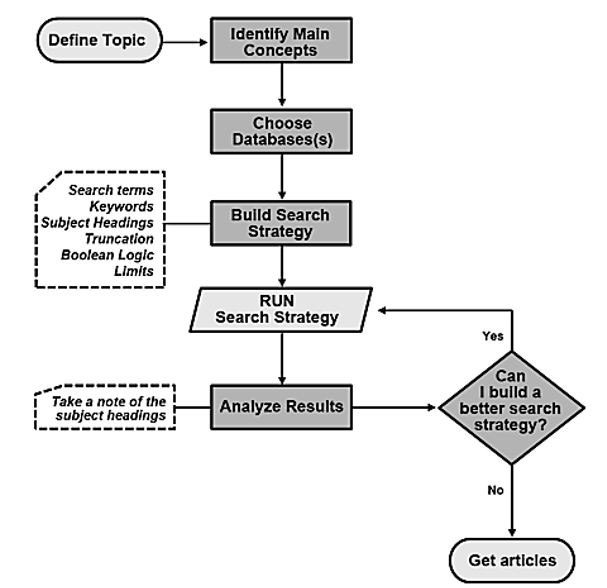Harmonization of Teachers and Students in Improving a Conducive Learning Climate
DOI:
https://doi.org/10.51574/ijrer.v4i4.3722Keywords:
Conducive, Learning Climate, Literature Study, Teacher-Student HarmonyAbstract
The learning process involves two main elements, teachers and students, who interrelate and influence each other. Harmonization in their relationship is not only a prerequisite for creating a conducive learning atmosphere but also a foundation for character formation and academic achievement. Therefore, the purpose of this study is to describe how teacher-student harmony creates a conducive learning climate. The type of research used in this study is a literature study. Data collection for literature studies involves searching, reading, and recording information from various written sources such as books, journals, articles, and reports to uncover theoretical foundations, develop a framework for thinking, and acquire knowledge relevant to the research problem. The stages of the research process include determining keywords, searching for literature using search engines or catalogs, selecting relevant sources, and analyzing and organizing the data to draw conclusions that address the problem formulation. The results of the study indicate that harmonization describes a condition of a harmonious, balanced, and mutually supportive relationship. For teachers and students, harmonization means establishing beneficial communication, mutual respect, and a shared understanding in carrying out the learning process. Harmonious relationships create a conducive, empathetic learning climate that optimally develops students' potential. A conducive learning climate is a learning environment, both physical and psychological, that supports effective learning. This environment encompasses social interactions between teachers and students, classroom management, classroom cleanliness and comfort, and students' feelings of safety and respect.
References
Abdigapbarova, U., & Zhiyenbayeva, N. (2023). Organization of student-centered learning within the professional training of a future teacher in a digital environment. Education and Information Technologies, 28(1), 647-661. https://doi.org/10.1007/s10639-022-11159-5
Adlini, M. N., Dinda, A. H., Yulinda, S., Chotimah, O., & Merliyana, S. J. (2022). Metode penelitian kualitatif studi pustaka. Jurnal Edumaspul, 6(1), 974-980.
Akram, H., & Li, S. (2024). Understanding the role of teacher-student relationships in students’ online learning engagement: Mediating role of academic motivation. Perceptual and Motor Skills, 131(4), 1415-1438. https://doi.org/10.1177/00315125241248709
Anuli, D. R. H., & Djafri, N. (2025). Peran Budaya Sekolah dan Iklim Belajar dalam Meningkatkan Mutu Pendidikan: Studi Kualitatif di SDN 10 Bongomeme. Jurnal Inovasi Penelitian Ilmu Pendidikan Indonesia, 36-43.
Azmi, B., Fatmasari, R., & Jacobs, H. (2024). Motivasi, disiplin, lingkungan sekolah: Kunci prestasi belajar. Aulad: Journal on Early Childhood, 7(2), 323-333. https://doi.org/10.31004/aulad.v7i2.654
Badrudin, B., Setiana, R., Fauziyyah, S., & Ramdani, S. (2024). Standarisasi Pendidikan Nasional. JIIP-Jurnal Ilmiah Ilmu Pendidikan, 7(2), 1797-1808. https://doi.org/10.54371/jiip.v7i2.3962
Banks, J., & Smyth, E. (2021). “We respect them, and they respect us”: The value of interpersonal relationships in enhancing student engagement. Education Sciences, 11(10), 634. https://doi.org/10.3390/educsci11100634
Bardach, L., Klassen, R. M., & Perry, N. E. (2022). Teachers’ psychological characteristics: Do they matter for teacher effectiveness, teachers’ well-being, retention, and interpersonal relations? An integrative review. Educational psychology review, 34(1), 259-300. https://doi.org/10.1007/s10648-021-09614-9
Birhan, W., Shiferaw, G., Amsalu, A., Tamiru, M., & Tiruye, H. (2021). Exploring the context of teaching character education to children in preprimary and primary schools. Social Sciences & Humanities Open, 4(1), 100171. https://doi.org/10.1016/j.ssaho.2021.100171
Cao, Y. (2025). Teacher‐Student Rapport: An Essential Mediator in Creating a Learning Climate Conducive to Psychological Well‐Being of Chinese Students. European Journal of Education, 60(1), e12794.
Cayubit, R. F. O. (2022). Why learning environment matters? An analysis on how the learning environment influences the academic motivation, learning strategies and engagement of college students. Learning Environments Research, 25(2), 581-599.
Darling-Hammond, L., Burns, D., Campbell, C., Goodwin, A. L., Hammerness, K., Low, E. L., ... & Zeichner, K. (2017). Empowered educators: How high-performing systems shape teaching quality around the world. John Wiley & Sons.
Ehrhardt-Madapathi, N., Pretsch, J., & Schmitt, M. (2018). Effects of injustice in primary schools on students’ behavior and joy of learning. Social Psychology of Education, 21(2), 337-369. https://doi.org/10.1007/s11218-017-9416-8
Hakkarainen, V., Mäkinen‐Rostedt, K., Horcea‐Milcu, A., D'amato, D., Jämsä, J., & Soini, K. (2022). Transdisciplinary research in natural resources management: Towards an integrative and transformative use of co‐concepts. Sustainable Development, 30(2), 309-325. https://doi.org/10.1007/s00267-021-01508-4
Harahap, E. F., Hady, A., Harahap, H. F., Rahmasari, R., & Sinaga, A. I. (2025). Urgensi dan Perjuangan Pendidik Dalam Perspektif Islam. EDU SOCIETY: JURNAL PENDIDIKAN, ILMU SOSIAL DAN PENGABDIAN KEPADA MASYARAKAT, 5(1), 01-13. https://doi.org/10.56832/edu.v5i1.643
Hasnanto, A. T. (2024). Effective classroom management to create a positive learning environment. Journal Corner of Education, Linguistics, and Literature, 4(001), 257-268.
Hidayat, R., & Eliasa, E. I. (2024). Dampak komunikasi dalam membangun hubungan positif antara guru dan siswa: Kajian sistematis literatur. Jurnal Pendidik Indonesia, 5(2), 98-107. https://doi.org/10.61291/jpi.v5i2.58
Juntunen, H., Tuominen, H., Viljaranta, J., Hirvonen, R., Toom, A., & Niemivirta, M. (2022). Feeling exhausted and isolated? The connections between university students’ remote teaching and learning experiences, motivation, and psychological well-being during the COVID-19 pandemic. Educational Psychology, 42(10), 1241-1262. https://doi.org/10.1080/01443410.2022.2135686
Jiang, S., Liu, R. D., Ding, Y., Oei, T. P., Fu, X., & Hong, W. (2019). Victim sensitivity and altruistic behavior in school: Mediating effects of teacher justice and teacher-student relationship. Frontiers in psychology, 10, 1077.
Julvianti, C., Gmaries, G. G., Vidyayanti, N. Q., & Zulfadewina, Z. (2025). Peran Guru dalam Mengajar Bagi Anak Berkebutuhan Khusus di Sekolah Dasar. EDUSAINTEK: Jurnal Pendidikan, Sains dan Teknologi, 12(2), 1041-1061. https://doi.org/10.47668/edusaintek.v12i2.1775
Kamran, M., Siddiqui, S., & Adil, M. S. (2023). Breaking barriers: The influence of teachers’ attitudes on inclusive education for students with mild learning disabilities (MLDs). Education Sciences, 13(6), 606. https://doi.org/10.3390/educsci13060606
Leijen, Ä., Arcidiacono, F., & Baucal, A. (2021). The dilemma of inclusive education: inclusion for some or inclusion for all. Frontiers in Psychology, 12, 633066.
Li, J., & Xue, E. (2023). Dynamic interaction between student learning behaviour and learning environment: Meta-analysis of student engagement and its influencing factors. Behavioral Sciences, 13(1), 59.
Lin, X., Wang, Q., Gu, H., Yu, J. J., & Limniou, M. (2025). Faculty's Negative Emotions in Poor Teacher–Student Online Interactions: Sources and Intentional Handling Strategies. European Journal of Education, 60(1), e12867. https://doi.org/10.1111/ejed.12867
Luo, N., Li, H., Zhao, L., Wu, Z., & Zhang, J. (2022). Promoting student engagement in online learning through harmonious classroom environment. The Asia-Pacific Education Researcher, 31(5), 541-551. https://doi.org/10.1007/s40299-021-00606-5
Maba, W. (2022). Essential healthy school environment standards to maintain conducive learning atmosphere. International Journal of Social Science, 2(1), 1211-1216.
McCray, C. R. (2022). Equitable Instruction, Empowered Students: A Teacher’s Guide to Inclusive and Culturally Competent Classrooms (Create an equitable instruction classroom culture that encourages equity and justice.). Solution Tree Press.
Mononen, M., Havu-Nuutinen, S., & Haring, M. (2023). Student teachers’ experiences in teaching practice using team teaching in flexible learning space. Teaching and Teacher Education, 125, 104069. https://doi.org/10.1016/j.tate.2023.104069
Muhammadiah, M. U., Hamsiah, A., Muzakki, A., Nuramila, N., & Fauzi, Z. A. (2022). The role of the professional teacher as the agent of change for students. Al-Ishlah: Jurnal Pendidikan, 14(4), 6887-6896. https://doi.org/10.35445/alishlah.v14i4.1372
Niemi, K. (2021). ‘The best guess for the future?’Teachers’ adaptation to open and flexible learning environments in Finland. Education Inquiry, 12(3), 282-300. https://doi.org/10.1080/20004508.2020.1816371
Page, A., Charteris, J., Anderson, J., & Boyle, C. (2021). Fostering school connectedness online for students with diverse learning needs: Inclusive education in Australia during the COVID-19 pandemic. European Journal of Special Needs Education, 36(1), 142-156. https://doi.org/10.1080/08856257.2021.1872842
Richardson, C., & Mishra, P. (2018). Learning environments that support student creativity: Developing the SCALE. Thinking skills and creativity, 27, 45-54.
Sakdiah, H., & Syahrani, S. (2022). Pengembangan standar isi dan standar proses dalam pendidikan guna meningkatkan mutu pembelajaran di sekolah. Cross-border, 5(1), 622-632. https://journal.iaisambas.ac.id/index.php/cross-border/article/view/1131
Schleicher, A. (2018). Educating learners for their future, not our past. ECNU Review of Education, 1(1), 58-75. https://doi.org/10.30926/ecnuroe2018010104
Siregar, D. M. S., Pulungan, N. A., Gajahmanik, S. E., & Yunita, S. (2024). Upaya Membangun Hubungan Yang Harmonis Antara Guru dan Orang Tua Siswa dalam Meningkatkan Kualitas Pembelajaran di Sekolah. Jurnal Nakula: Pusat Ilmu Pendidikan, Bahasa dan Ilmu Sosial, 2(4), 253-260.
Soran, E. (2025). The Conducive Learning Environment and its Role in Improving the Quality of teacher-student Relationships during physical education lessons. Indonesian Journal of Sport Management, 5(1), 136-148. https://doi.org/10.31949/ijsm.v5i1.12482
Subiarto, S., & Wakhudin, W. (2021). The role of teachers in improving the discipline character of students. Dinamika Jurnal Ilmiah Pendidikan Dasar, 13(2), 71-75. https://doi.org/10.30595/dinamika.v13i2.11552
Sumar, W. T., & Mahawati, B. (2025). The Relationship Of Teacher Teaching Strategies And Class Environment With Student Learning Motivation. In Proceedings of the 8th International Conference on Education Innovation (ICEI 2024) (Vol. 888, p. 145). Springer Nature.
Syaipudin, L., & Luthfi, A. (2024). Peran guru dalam aplikatif model pembelajaran pendidikan agama Islam bagi anak berkebutuhan khusus pada Sekolah Luar Biasa. Jurnal Ilmiah Insan Mulia, 1(1), 27-33. https://doi.org/10.59923/jiim.v1i1.179
Woodcock, S., Sharma, U., Subban, P., & Hitches, E. (2022). Teacher self-efficacy and inclusive education practices: Rethinking teachers’ engagement with inclusive practices. Teaching and teacher education, 117, 103802. https://doi.org/10.1016/j.tate.2022.103802
Xiang, D., Qin, G., & Zheng, X. (2022). The influence of student-teacher relationship on school-age children’s empathy: the mediating role of emotional intelligence. Psychology research and behavior management, 2735-2744. https://doi.org/10.2147/PRBM.S380689
Xie, F., & Derakhshan, A. (2021). A conceptual review of positive teacher interpersonal communication behaviors in the instructional context. Frontiers in psychology, 12, 708490.
Yeh, C. T. (2023). Class management in Taiwan’s active aging learning centers: demonstration of the relationship, interaction, and harmony in ethnic Chinese societies. Educational gerontology, 49(12), 1039-1048. https://doi.org/10.1080/03601277.2023.2200063
Zarhasih, U. U., & Yasin, M. (2024). Hubungan Interaktif Edukatif Guru dan Peserta Didik. AL-AMIYAH: Jurnal Ilmiah Multidisiplin, 1(01), 39-50. https://doi.org/10.71382/aa.v1i01.73
Zheng, Y., Shen, J., & Li, X. (2025). The association between teacher-to-teacher relationships and student achievement: a meta-analysis. Research Papers in Education, 40(2), 188-212. https://doi.org/10.1080/02671522.2024.2349990

Downloads
Published
How to Cite
Issue
Section
License
Copyright (c) 2025 Nurdalia Nurdalia

This work is licensed under a Creative Commons Attribution-ShareAlike 4.0 International License.









1.png)













